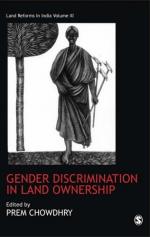|
This section contains 363 words (approx. 2 pages at 300 words per page) |
Land reform is a social and political restructuring of the agricultural systems through redistribution of land. Successful land reform policies take into account the political, social, and economic structure of the area.
In agrarian societies, large landowners typically control the wealth and the distribution of food. Land reform policies in such societies allocate land to small landowners, to farm workers who own no land, to collective farm operations, or to state farm organizations. The exact nature of the allocation depends on the motivation of those initiating the changes. In areas where absentee ownership of farmland is common, land reform has become a popular method for returning the land to local ownership. Land reforms generally favor the family-farm concept, rather than absentee landholding.
Land reform is often undertaken as a means of achieving greater social equality, but it can also increase agricultural productivity and benefit the environment. A tenant farmer may have a more emotional and protective relation to the land he works, and he may be more likely to make agricultural decisions that benefit the ecosystem. Such a farmer might, for instance, opt for natural pest control. An absentee owner often does not have the same interest in land stewardship.
Land reform does have negative connotations and is often associated with the state collective farms under communism. Most proponents of land reform, however, do not consider these collective farms good examples, and they argue that successful land reform balances the factors of production so that the full agricultural capabilities of the land can be realized. Reforms should always be designed to increase the efficiency and economic viability of farming.
Land reform is usually more successful if it is enacted with agrarian reforms, which may include the use of agricultural extension agents, agricultural cooperatives, favorable labor legislation, and increased public services for farmers, such as health care and education. Without these measures land reform usually falls short of redistributing wealth and power, or fails to maintain or increase production.
See Also
Agricultural Pollution; Sustainable Agriculture; Sustainable Development
Resources
Books
Mengisteab, K. Ethiopia: Failure of Land Reform and Agricultural Crisis. Westport, CT: Greenwood Publishing Group, 1990.
Periodicals
Perney, L. "Unquiet on the Brazilian Front." Audubon 94 (January-February 1992): 26–9.
|
This section contains 363 words (approx. 2 pages at 300 words per page) |


